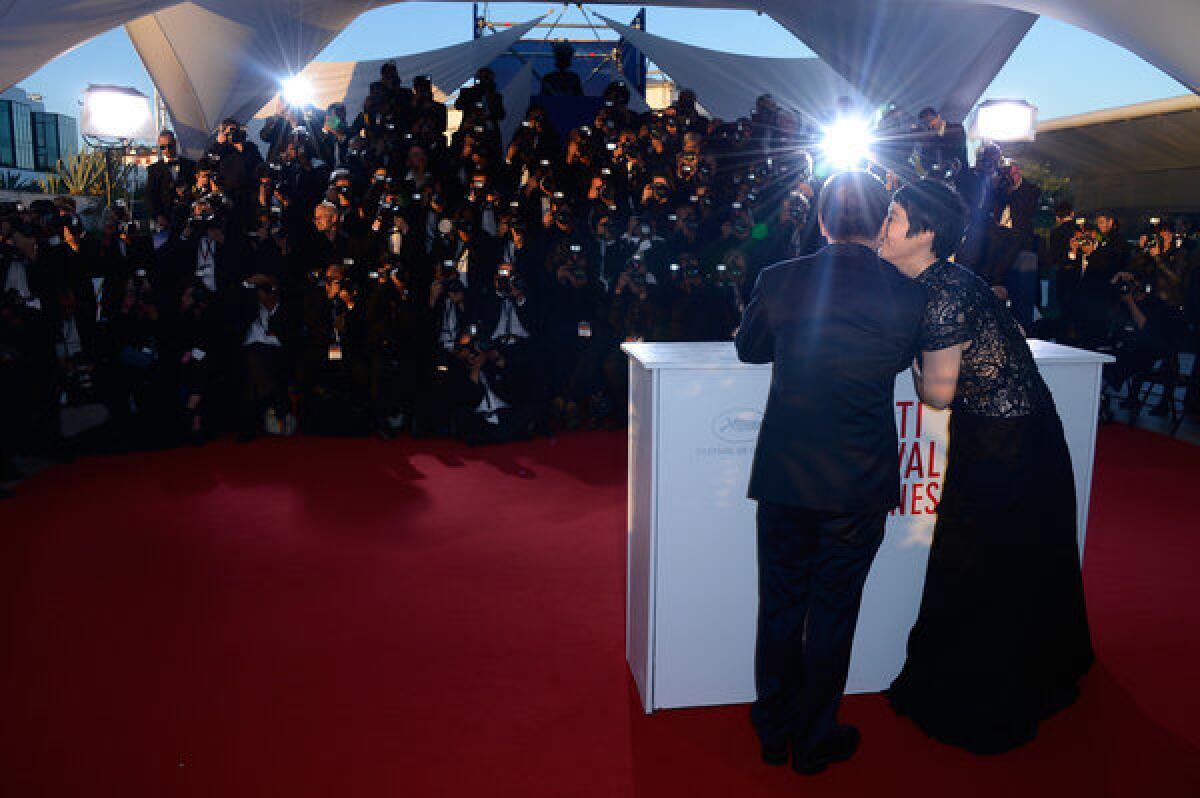China says it’ll relax film, TV censorship; directors unimpressed

- Share via
BEIJING -- Chinese authorities said Wednesday they would relax some restrictions on film, TV and radio productions, though the immediate impact of the changes was unclear and several prominent movie directors said they did not believe the reforms were game-changers.
Chinese filmmakers will now be allowed to shoot “ordinary content” movies after only submitting a synopsis to censors rather than a full script, according to an announcement from the State Council, China’s cabinet. But the finished products will still have to be screened for censors before they are approved to be played in theaters.
Exactly what “ordinary content” movies are was not clearly defined, though local reports suggested films dealing with topics such as religion, ethnic minorities, key historical episodes and crime stories would fall outside the category.
Director Liu Jie said there would be little practical effect from the change because the final films would still be subject to censorship. “If we are too relaxed with the script, we might have issues with the [finished] film,” he said.
Jia Zhangke, whose “A Touch of Sin” generated significant buzz at the Cannes Film Festival this year, said that the definition of “ordinary content” remained unclear and that would be up to government censors.
Overall, he said that the changes were not revolutionary. “For those who enjoy self-censoring, the self-censorship will continue,” he told Chinese media outlets. “For those who enjoy the freedom of creation, they will continue to create according to their own ideas.”
In other changes, authorities will no longer need to approve the import of equipment needed for films co-produced by Chinese and foreign partners.
ON LOCATION: Where the cameras roll
In addition, censorship of domestic TV programs with foreign producers will now be handled at the provincial level, rather than the national level, the announcement from the State General Administration of Press, Publication, Radio, Film and Television said.
In an effort to streamline some bureaucracy, the agency was formed this year by merging SARFT (the State Administration of Radio, Film and Television) with the General Administration of Press and Publication.
Nicole Liu in the Times’ Beijing bureau contributed to this report.
ALSO:
Uncommon Content out to make Web shows that click on TV
Time Warner CFO John Martin to succeed Phil Kent as Turner CEO
Sports Illustrated NFL writer Peter King ready to QB new Web team
More to Read
From the Oscars to the Emmys.
Get the Envelope newsletter for exclusive awards season coverage, behind-the-scenes stories from the Envelope podcast and columnist Glenn Whipp’s must-read analysis.
You may occasionally receive promotional content from the Los Angeles Times.











